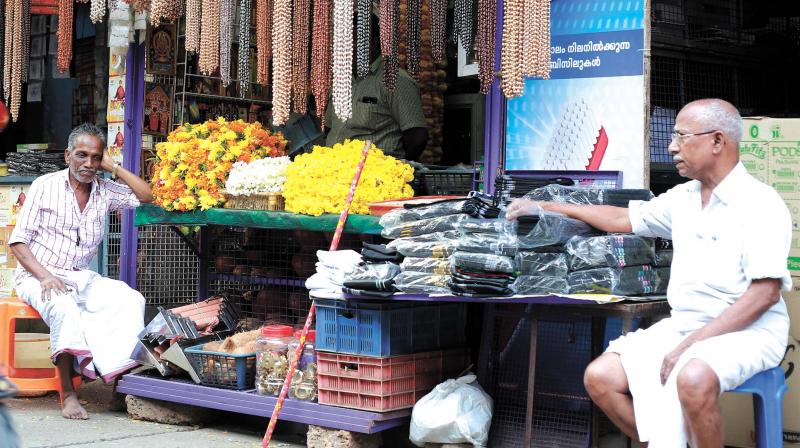Demonetisation hits Kerala traders hard
Nerve centres of trade in the state dull due to non-availability of popular currencies

The government’s move to prod people to move a cashless economy could take time to succeed if the scenes post-demonetisation in the major trading centres in the state are an indication. Most traders complain of loss of business thanks to the near-non-availability of popular currencies. Nerve centres of trade in Kozhikode such as SM Street, Valiyangadi and Palayam where some shops function round the clock have been badly affected; and so is the central fish market. The business of vegetable vendors, saloons, tea stalls, grocery shops and wholesalers has come to a standstill eight days after Prime Minister Narendra Modi announced the decision to withdraw high value currencies.
‘Pooja store’ vendors lament over zero business in spite of the Sabarimala season kicking off on Tuesday. Valiyangadi which has more than 200 shops is the place where small traders from various parts of the district shop. “We suffer now as the currencies have suddenly vanished,” said Raichikutty, a wholesale vendor in Valiyangadi. “The business will resume as soon as this crisis solved. But I don’t know how long this will last.” Business establishments such as shops, restaurants and saloons which work without credit are the worst affected, said Ali Ahamed, district executive committee member of Kerala Vyapari Vyavasayi Ekopana Samithi. “Now the rush has shifted to bank branches.” SM Street, another prominent trading centre, has a similar story to tell.
Traders in Ernakuam market also complain of loss of business. C.D. Saji, a vegetable wholesale dealer, says 80 per cent of the market is affected. “Vegetable traders are still accepting Rs 500 and Rs 1,000 notes while other merchants not,” he said. “But this also will stop this week because as suppliers from Tamil Nadu say that they cannot extend the facility further. The RBI should have brought out new Rs 500 notes instead of Rs 2000.” Joseph D’Silva, a trader in watches on Broadway, said that 80-90 per cent of the trade is down. “People are cautious in spending while we don’t have sufficient money to make available fresh merchandise,” he said. It is learnt that sales of second-hand cars too have been totally hit in the turmoil.
There is a lull all over Chalai, the main trading centre in the state capital. Many traders of perishable goods, especially vegetables, have cut down on prices to minimise losses. There was short spurt in business on Sunday evening on the news that the traders were planning an indefinite stir from Tuesday. “My shop used to earn between Rs 12,000 and Rs 20,000,” Mahin S, a shopkeeper, said. “Now the daily earning hovers around Rs 9000.”

